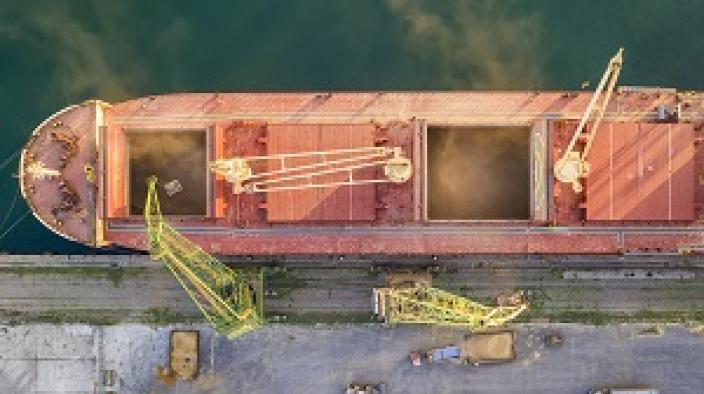
Laura Haddon
Published: May 19, 2023
In K Line Pte v Priminds Shipping (HK) Co. Ltd (The “Eternal Bliss”) [2021] EWCA Civ 1712, the Court of Appeal reversed the decision of the High Court: The Eternal Bliss – Can damages in addition to demurrage be recovered?, holding that demurrage liquidated the whole of the damages arising from a charterer’s breach in failing to complete cargo operations within the agreed laytime and not merely some of them.
Background
The facts are set out more fully in the Club’s previous article, however in brief, a dispute arose in relation to a shipment of soybeans from Brazil to China which later suffered damage/deterioration following a delay in discharging at the discharge port, leading the Owners to incur a claim from the receivers. The Owners then sought damages or an indemnity from Charterers in respect of that claim.
The High Court concluded that the demurrage rate is intended to liquidate the shipowner’s loss of earnings arising from the loss of use of the ship to earn freight and does not seek to liquidate a claim for a different type of loss, such as damage to cargo, as occurred in this case. The High Court further concluded that an additional/separate breach was not required in order for damages for a different type of loss to be recovered, and that the decision of the High Court in The Bonde (which found an additional breach was necessary) had therefore been wrongly decided.
The Charterers appealed the decision.

The Court of Appeal Decision
The Court of Appeal overturned the decision of the High Court and found in favour of the Charterers. The Court of Appeal conceded that the legal authorities are inconclusive and that they must therefore approach the issue as one of principle; concluding that demurrage is the exclusive remedy for all consequences of the charterer’s failure to complete cargo operations within the agreed laytime and accordingly if a shipowner wishes to recover damages in addition to demurrage arising from delay, a separate breach of charter must be proved.
The Court of Appeal cited a number of reasons for reaching this conclusion, including that a liquidated damages clause which liquidated only some damages, or only some types of loss, arising from a particular breach without stating this clearly, would be an unusual and surprising result for commercial people and would run contrary to the purpose of such clauses which is generally to provide certainty and avoid disputes.
A further reason related to the proper meaning of ‘demurrage’ and what it is intended to cover. The Court of Appeal accepted that the loss primarily contemplated by parties would likely be the loss of prospective freight earnings suffered as a result of the charterer’s delay in completing cargo operations, but that does not mean that this is all that demurrage is intended to cover. The Court considered it was more accurate to say that demurrage is the result of a negotiation between the parties in which the loss of prospective freight earnings is likely to be one factor, but not the only factor.
Commentary
The decision will, for now at least, be a welcome development for charterers, who will gain comfort from knowing that, absent any express wording to the contrary in the charter, demurrage will be the shipowner’s exclusive remedy in relation to all losses flowing from the charterer’s failure to complete cargo operations within the agreed laytime.
From the perspective of shipowners, should they wish to preserve their ability to recover, for example, cargo liabilities flowing from the charterer’s failure to complete cargo operations within the agreed laytime, then they will need to include express wording in the charter / demurrage clause to this effect.
In September 2022 the Owners were granted permission to appeal the Court of Appeal decision by the Supreme Court. Therefore, the shipping community will have to wait a while longer before the issue of damages in addition to demurrage is finally put to bed. However, in May 2023, the Owners’ appeal was withdrawn following a commercial settlement between the parties. This means that, until such time as the issue comes before the English courts again in a future case, demurrage is the sole remedy for all consequences of the charterer’s failure to complete cargo operations within the agreed laytime.


